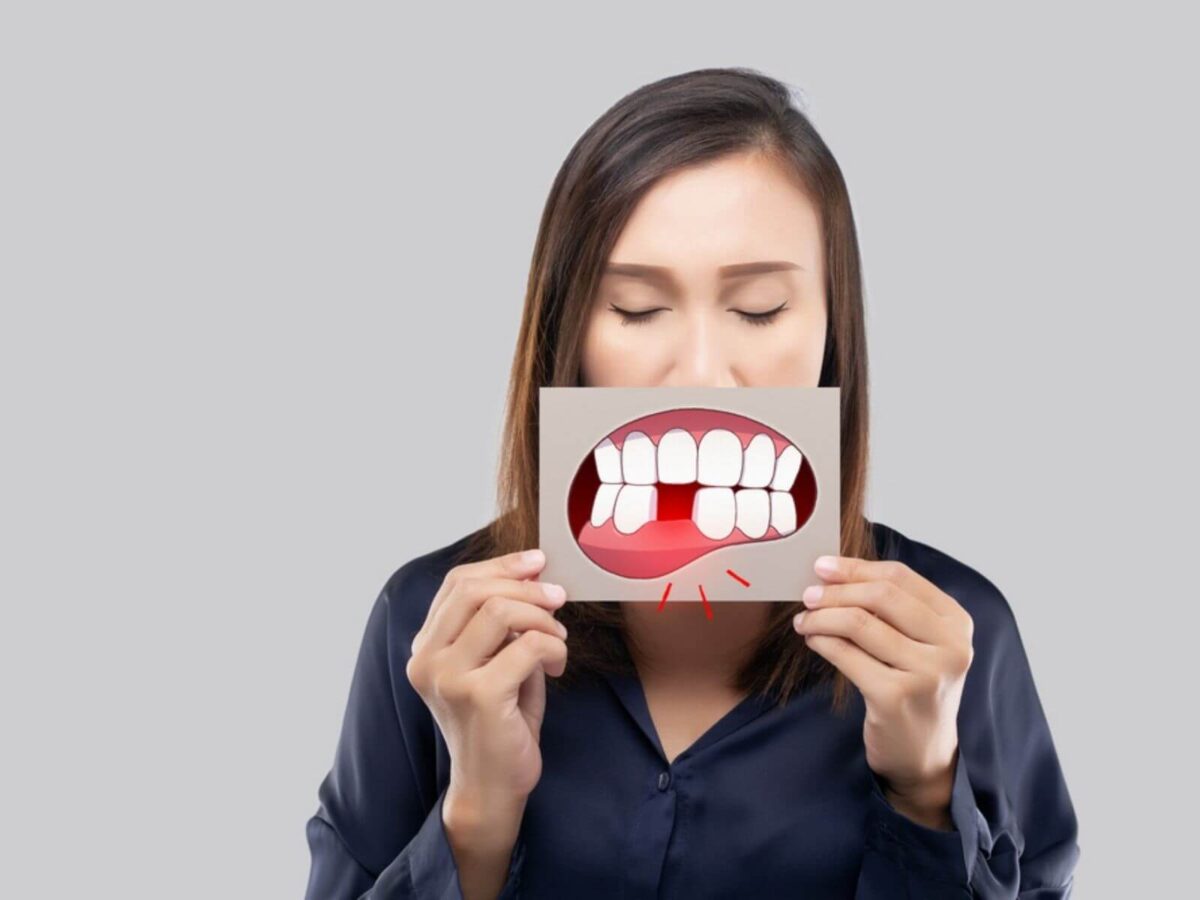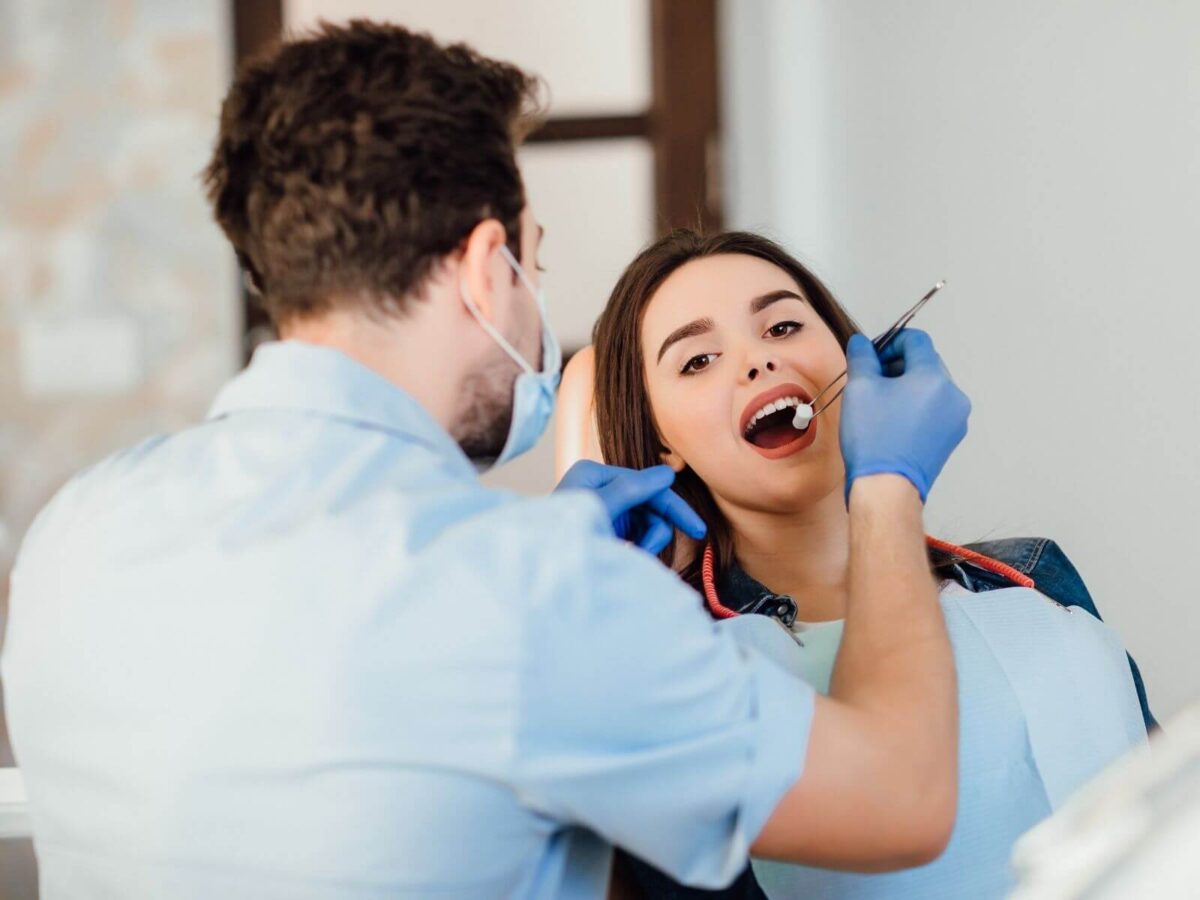A cracked tooth can become a dental emergency if accompanied by certain severe symptoms. While a cracked tooth doesn’t always cause panic, some signs indicate that immediate attention from a dentist is needed. Here’s a closer look at what constitutes a dental emergency and what you should do if you experience a cracked or broken tooth.
What is a Broken Tooth?
A broken tooth occurs when its structure is damaged. Even minor damage can affect your tooth’s appearance and function, potentially leading to further complications. A chipped tooth may be aesthetically unappealing and impair its structural integrity and function, requiring immediate attention.
Common forms of fractured teeth include the incisal enamel, the dentin, and the root. Caries lead to enamel fractures, which are most common and do not always affect the inside of the tooth. Dentin fractures are less severe than crown fractures because the cracks go deeper into the tooth. Root fractures occur underneath the gum line.
The signs of the loosened tooth also depend on the extent of the damage done to the tooth.
Biting or chewing causes severe pain. When exposed to mildly hot or cold food and beverages, the affected area experiences increased swelling and sometimes even bleeding if an exposed nerve is pressed.
There are many causes of a broken tooth, including accidents or traumas, biting down on hard substances, bruxism – grinding and clenching your teeth, eroded or weakened tooth structure from decay or previous dental treatment, and general wear and tear with age.
Estimating the Degree of a Fracture in a Tooth
Broken teeth can vary greatly in severity. Some may show minimal or no visible surface damage but hide significant internal tissue injury, while others may involve extensive structural damage. Factors such as the size of the gap, the tooth’s location, and whether pain is present help determine the seriousness of the issue. Regardless of these factors, it’s essential to consult an emergency dentist like Gragerland Dental to prevent further complications.
Types of Tooth Fractures
1. Minor Fractures: These invade the enamel only and usually do not hurt a lot or cause pain. The best thing is to visit a dentist and have them checked.
2. Moderate Fractures: These fractures lie semi or partially in the enamel and dentin, which lies beneath the enamel. It might cause elevated sensitivity and should be handled immediately to avoid further deterioration.
3. Severe Fractures: Comprehensive chips penetrate the tooth’s core. They damage the pulp chamber that contains nerves and blood vessels. Such breaks may be painful and can compromise the state of health of the tooth by increasing its susceptibility to infections, and an emergency dentist should be contacted as soon as possible.
When Is Broken Tooth Considered An Emergency?
- Pain
Sharper sensations and pain are signs of an issue with your tooth, especially if it has a chip or damage. If your tooth chips, cracks, or breaks and you experience pain, consult your dentist as soon as possible. - Bleeding
One major sign that tells you that you should look for an emergency dentist who can repair a chipped tooth is bleeding. Where there is bleeding in the mouth, your gums or deeper layers of your teeth are usually injured. Injury in these areas is common and requires proper treatment to regain teeth and improve oral health. In other cases, having a loose or knocked-out tooth may lead to some swelling or pain. In this situation, it is recommended to: - Do not use aspirin for pain relief because it will promote more bleeding.
- Use pressure on the given area to stop the blood outflow.
- Preserve the tooth and take it to the dentist.
What Should I Do If I Have A Broken Or Chipped Tooth?
If only part of a tooth is missing or has been completely knocked out, it qualifies as a dental emergency requiring immediate attention from a dentist. While waiting for your appointment, rinse your mouth with warm salted water and apply gentle pressure to the affected area to control bleeding. Use an ice pack outside the mouth near the injury to reduce swelling. Avoid taking aspirin for pain relief, as it can exacerbate bleeding.
If a tooth has been dislodged from its socket, carefully locate it and rinse it gently with water, avoiding any contact with the roots. To keep the tooth moist until you can visit a dentist, soak it in milk or a saline solution. The dentist will determine whether a full extraction is required or if the tooth may be put back in.
Whenever patients suffer a broken tooth, they get upset and panic. It is important to stay calm. Dental problems can also appear suddenly, and there is no harm in calling a dentist for help as soon as possible.
Preventing Dental Emergencies
You can lower your chance of getting a broken tooth or other dental problems, even if certain dental emergencies are unavoidable:
1. Practice Good Oral Hygiene: Cleaning your teeth by brushing them at least twice a day and flossing in the morning and at night can also keep your dental health in check by visiting the dentist for a check-up.
2. Avoid Chewing Hard Foods: Choose foods wisely, and don’t bite anything you know might crunch, like ice, popcorn, or a hard candy.
3. Wear a Mouthguard: People who engage in sports or other activities that may cause dental injury will benefit.
Finishing It Up
A Broken tooth is like any other dental emergency that should be handled by a qualified dentist as soon as possible. If you are in this position in Texas, do not wait to see Grangerland Dentist to evaluate the damage and recommend the right action. Taking precautions and acting fast when you develop symptoms will help you protect your dental health from worsening further.




